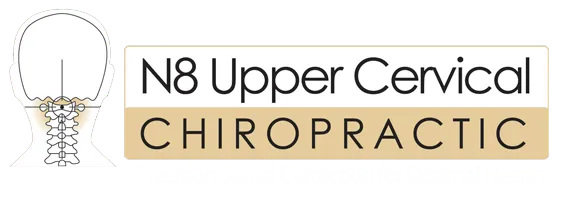
Playfully getting pinched for being troublesome as a child is a nostalgic memory for some people. Especially if you’re cute and chubby, you may have experienced getting pinched in the cheeks when you were little.
Do you remember what that pinching felt like? Do you remember how the patch of your skin tingles before getting a bit numb mere moments later? Imagine if one of the major nerves in your body gets pinched. What would that feel like?
Pinched nerves are nothing short of serious-- hence, you should not take pinched nerves lightly, especially if you begin to notice lingering pain and numbness in certain parts of your body.
You might have some questions about pinched nerves. So, our Manila chiropractor for pinched nerves will answer three of the most common questions about pinched nerves.
Question #1: What Are the Signs of a Pinched Nerve?
This is the first question that comes to mind of people who look for a Manila chiropractor for pinched nerves. But, of course, knowing if your body’s presenting symptoms of a condition can make the diagnosis and treatment miles more effortless.
Here is a checklist of the symptoms of a pinched nerve:
Lingering, spreading pain across the affected region
The most telling sign of a pinched nerve is the radiating pain. Depending on the size of the affected area and the intensity of “pinching,” you may experience moderate to incapacitating pain.
Pins-and-needles feeling in the affected area
The pins-and-needles sensation we describe here is not the usual one you get when your arms or legs fall asleep. Imagine this scenario. A person carrying a broomstick runs into you at full speed and hits your body, bristle-first.
Numbness and tingling
You may be able to determine which region in your body has a pinched nerve due to gradual loss of sensation. Nerves are the body’s communication path to the brain and vice-versa. Therefore, having a pinched nerve may cause the affected region to lose any feeling.
Poor muscle control and coordination of the limbs
If you recall the human anatomy, your nerves are also responsible for your motor movements and not just sensations. Suppose you have a pinched nerve on the region that controls your legs. Because of this pinched nerve, you may lose control of your leg muscles.
To illustrate, when a pinched nerve suddenly attacks while you’re going up the stairs, you may be at risk of falling due to losing control of your legs. And if the affected area reaches your arms, you may be unable to hold on to the railings of the stairs to save yourself.
So, if you have a hunch that you have a pinched nerve, it’s best to schedule an appointment with your doctor or a Manila chiropractor for pinched nerves. Then, you can all work together to devise a plan for your relief.
Question #2: When Do Pinched Nerves Become Serious?
Nerves make up half of the central nervous system (CNS). Along with the brain, the billions of nerves of your body are responsible for signal transmissions, motor movements, and even involuntary actions.
The brain can detect if there’s something wrong with the nerves-- pain, numbness, and poor muscle coordination are the usual indicators of problems, like pinched nerves.
The answer to the question, “When should I get my pinched nerve checked?” all depends on the location of your pinched nerve. People with this condition usually have varying areas of compressed nerves and, therefore, varying experiences.
Our Manila chiropractor for pinched nerves has identified the four major pinched nerve locations and the possible outcome of the issue.
Here are the four major nerves in the body and what happens if they get pinched:
Trigeminal Nerve
Located in your face-- starting behind your ears and extending outwards-- the trigeminal nerve is responsible for your facial movements and sensations.
Suppose a misaligned neck bone presses on this nerve. The pinching might result in trigeminal neuralgia. And if you have this condition, you won’t be smiling around because it would hurt. Even a slight touch to your facial skin can trigger the most excruciating pain. Imagine how challenging it would be to eat, yawn, or even scratch your face to eliminate an annoying itch.
Spinal Nerve
Any pinching in your spine can make you develop radiculopathy. Furthermore, if the pinched nerve exists in your neck, you have cervical radiculopathy. And if it is in the lower spine, you have lumbar radiculopathy.
Having a pinched spinal nerve may result in unbearable back pain and discomfort when standing or lying down. Although rare, some pinching may be too severe that they would require injections or even surgical intervention.
Median Nerve
The median nerve begins at your forearms and ends at the tip of your fingers (sans the pinkies). Muscles mostly surround this nerve, so muscle inflammation may cause its compression.
Carpal tunnel syndrome is one of the most common conditions that result from a pinched median nerve. Carpal tunnel syndrome usually affects the wrist, fingers, and back of the hands. Recent generations refer to it as the “gamer syndrome” since many pc gamers develop this condition over time due to excessive use of their hands when typing.
Sciatic Nerve
The sciatic nerve, located at the end of the spine and extending to the back of each leg, is the largest nerve in the body. Therefore, any pinching in this region may result in sciatica.
If you’re not familiar with the term, this condition brings about unbearable pain from the lower back, buttocks, and one or two legs. People with sciatica also complain of poor bowel and bladder control due to the pinched nerve.
Question #3: How Do I Care for A Pinched Nerve?
Now that you know about the different symptoms and conditions following a pinched nerve, the only question left is how to get relief. This is the final question and perhaps the most valuable one to those seeking a Manila chiropractor for pinched nerves.
So, here are five natural methods to get relief from a pinched nerve:
Massage the region carefully.
Gently massaging the affected region may help loosen the compression or tightness surrounding the nerve. Try to apply light, round motions on the area where you think the pinched nerve is located.
Try mild stretches.
Stretching can help unravel muscle tension and ease a pinched nerve. However, you must pay attention to any further pain or discomfort to prevent your compressed nerve from getting worse.
Apply ice or heat to the affected region.
You can also use an ice or heat pack alternatively to the skin atop the pinched nerve. Ice and heat can help reduce pain and inflammation if correctly used. At most, only apply the ice or heat pack for 20 minutes. The heat and cold may damage your skin and add more pain if used longer than the timeframe.
Give your pinched nerve a rest.
In case that the above methods do not work, perhaps the best thing you can do to your pinched nerve is to give it time to rest and heal. In many cases, pinched nerves can resolve on their own. All you need is patience. So, if time permits, take a day off and just relax.
Find relief for your pinched nerve with NUCCA Care.
Last but not least, to ensure that the pinching goes away, ask for help from a NUCCA chiropractor. Think of the spine as a row of dominoes. Suppose a misalignment develops in its topmost part. It can result in a series of discomfort, pain, and nerve pinching.
Here at N8 Upper Cervical Chiropractic, we correct your neck misalignment-- giving you the chance to find relief from the painful and inconvenient pinched nerve. Reach us today for a consultation!
To schedule a consultation with N8 Upper Cervical Chiropractic clinic, call (02) 8553-6218 or just click the button below.
If you are outside of the local area, you can find an Upper Cervical Doctor near you at www.uppercervicalawareness.com.

